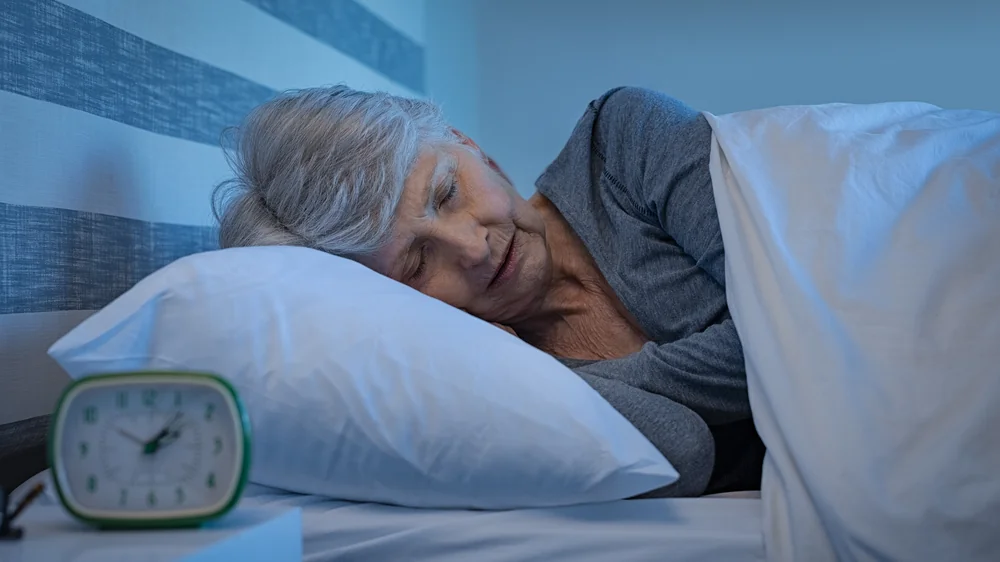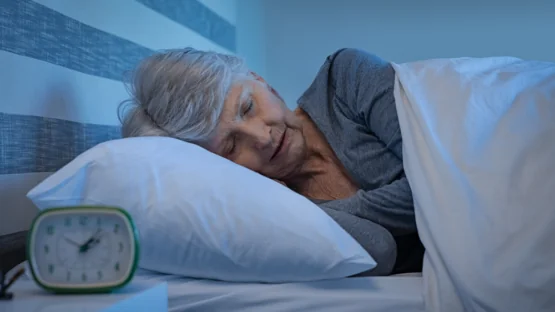Showing yet again that sleep is a serious matter, scientists have reported that short sleep duration, snoring, and long naps are linked to a significantly elevated risk of acute stroke [1].
Debilitating and deadly
Stroke, an acute condition in which the blood supply to a part of the brain is interrupted, is one of the most prevalent causes of death worldwide. Stroke is also highly age-related, with its likelihood doubling every 10 years after the age of 55. Moreover, stroke survivors have a significantly higher risk of another stroke and shorter life expectancy. One study found that stroke reduces remaining life expectancy by 20% to 40% and the number of disability-free years by up to 90% [2].
For decades, the effects of sleep quality on health have been largely overlooked. However, in recent years, sleep quality has emerged as one of the most potent moderators of health and possibly lifespan. One meta-analysis found that short sleep duration (less than six hours per day) was associated with a 12% increase in all-cause mortality [3]. According to another study, the incidence of coronary heart disease was linked to short sleep duration, and even more robustly, to impaired sleep quality [4].
Strong association
In this new paper, the researchers analyzed the results of the INTERSTROKE study, which involved 4,496 participants, with 1,799 having experienced an ischemic stroke and 439 an intracerebral haemorrhage; the rest of the participants were age- and sex-matched healthy controls.
The researchers found that various sleep characteristics were significantly correlated with stroke incidence. For example, people with an average night sleep duration of less than five hours were more than three times more likely (odds ratio of 3.15) to experience any kind of stroke than people with the reference sleep duration, which the researchers had set at 7 hours. Interestingly, while the odds ratio for ischemic hemorrhage was 2.64, the odds ratio for intracerebral hemorrhage (ICH) was much higher at 9.15.
The researchers saw a clear U-shaped association, which is consistent with previous research. While too little sleep is a likely cause of health problems, too much sleep is often a symptom of a disease. In this study, people with prolonged sleep duration (more than 9 hours on average) were 2.67 times more likely to experience stroke than the reference group.
Short sleep and snoring are the worst
Napping was positively associated with stroke risk as well, except for short (less than one hour) and planned napping, in which the association did not reach statistical significance. People who often took long, unplanned naps had 2.46 times higher odds of stroke.
Self-reported sleep quality and frequent waking were only mildly associated with stroke, while the symptoms of obstructive sleep apnea (OSA) had a strong association. For simple snoring, the odds ratio was 1.91, snorting had 2.64, and breathing cessation had 2.87. Surprisingly, the odds ratio was in the same ballpark for people who responded “do not know” when asked about the prevalence of those symptoms in their sleep.
The researchers also found a significantly cumulative effect of short sleep duration and snoring, with sleep-deprived snorers being 4.04 times more likely to have a stroke. No significant interaction between sleep duration and other symptoms was detected.
Regional and ethnic differences
Unlike most previous studies into stroke, the INTERSTROKE cohort included people from several countries and of various ethnic backgrounds. The researchers found an intriguing, statistically significant effect of both ethnicity and region. In particular, the association between short sleep duration and stroke was the strongest for South Asian ethnicity and region, and not significant for Chinese ethnicity and China. Age and sex were not found to be important factors.
The model was adjusted for several potential confounders, such as occupation, marital status, alcohol consumption, physical activity, diet quality, body mass index (BMI), stress, depression, and history of diabetes. Interestingly, a previous analysis of INTERSTROKE, published about a month ago, revealed a strong correlation between stroke and depressive symptoms [5].
Conclusion
This study adds to the growing body of evidence showing the importance of sleep quality, which is often sacrificed or overlooked in modern society. Getting a lot of good quality sleep might be just as beneficial for your health as eating healthy or exercising. While this particular research paper is just an association study, serious symptoms such as obstructive sleep apnea should be dealt with as soon as possible.
Literature
[1] Mc Carthy, C. E., Yusuf, S., Judge, C., Alvarez-Iglesias, A., Hankey, G. J., Oveisgharan, S., … & O’Donnell, M. (2023). Sleep Patterns and the Risk of Acute Stroke: Results from the INTERSTROKE International Case-Control Study. Neurology.
[2] Bardenheier, B. H., Lin, J., Zhuo, X., Ali, M. K., Thompson, T. J., Cheng, Y. J., & Gregg, E. W. (2016). Compression of disability between two birth cohorts of US adults with diabetes, 1992–2012: a prospective longitudinal analysis. The Lancet Diabetes & Endocrinology, 4(8), 686-694.
[3] Cappuccio, F. P., D’Elia, L., Strazzullo, P., & Miller, M. A. (2010). Sleep duration and all-cause mortality: a systematic review and meta-analysis of prospective studies. Sleep, 33(5), 585-592.
[4] Lao, X. Q., Liu, X., Deng, H. B., Chan, T. C., Ho, K. F., Wang, F., … & Yeoh, E. K. (2018). Sleep quality, sleep duration, and the risk of coronary heart disease: a prospective cohort study with 60,586 adults. Journal of Clinical Sleep Medicine, 14(1), 109-117.
[5] Murphy, R. P., Reddin, C., Rosengren, A., Judge, C., Hankey, G. J., Ferguson, J., … & O’Donnell, M. (2023). Depressive Symptoms and Risk of Acute Stroke: INTERSTROKE Case-Control Study. Neurology.





